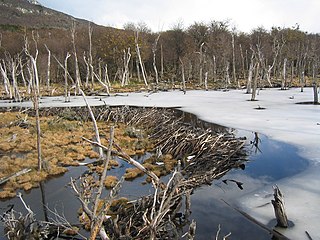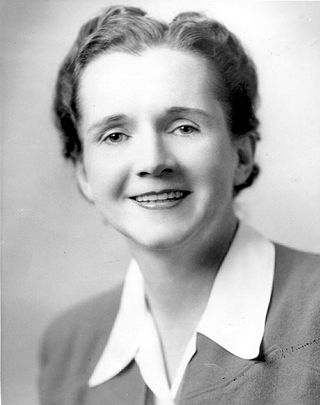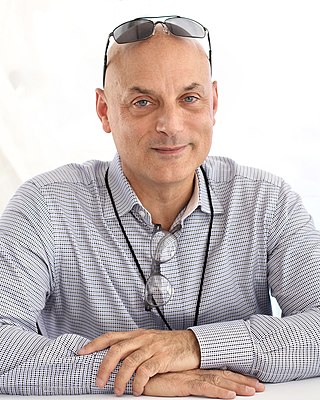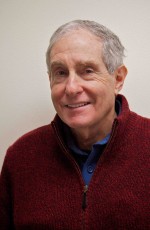Related Research Articles

An invasive species is an introduced species that harms its new environment. Invasive species adversely affect habitats and bioregions, causing ecological, environmental, and/or economic damage. The term can also be used for native species that become harmful to their native environment after human alterations to its food web. Since the 20th century, invasive species have become serious economic, social, and environmental threats worldwide.

Rachel Louise Carson was an American marine biologist, writer, and conservationist whose sea trilogy (1941–1955) and book Silent Spring (1962) are credited with advancing marine conservation and the global environmental movement.

Silent Spring is an environmental science book by Rachel Carson. Published on September 27, 1962, the book documented the environmental harm caused by the indiscriminate use of DDT, a pesticide used by soldiers during WW2. Carson accused the chemical industry of spreading disinformation, and public officials of accepting the industry's marketing claims unquestioningly.

Carolyn Merchant is an American ecofeminist philosopher and historian of science most famous for her theory on The Death of Nature, whereby she identifies the Scientific Revolution of the seventeenth century as the period when science began to atomize, objectify, and dissect nature, foretelling its eventual conception as composed of inert atomic particles. Her works are important in the development of environmental history and the history of science. She is Distinguished Professor Emerita of Environmental History, Philosophy, and Ethics at UC Berkeley.

Carlo Rovelli is an Italian theoretical physicist and writer who has worked in Italy, the United States, France, and Canada. He is currently Emeritus Professor at the Centre de Physique Theorique of Marseille in France, a Distinguished Visiting Research Chair at the Perimeter Institute, core member of the Rotman Institute of Philosophy of Western University in Canada, and Fractal Faculty of the Santa Fe Institute in The United States.

Applied ecology is a sub-field within ecology that considers the application of the science of ecology to real-world questions. It is also described as a scientific field that focuses on the application of concepts, theories, models, or methods of fundamental ecology to environmental problems.

Ecological restoration, or ecosystem restoration, is the process of assisting the recovery of an ecosystem that has been degraded, damaged, or destroyed. It is distinct from conservation in that it attempts to retroactively repair already damaged ecosystems rather than take preventative measures. Ecological restoration can reverse biodiversity loss, combat climate change, and support local economies.

Environmental history is the study of human interaction with the natural world over time, emphasising the active role nature plays in influencing human affairs and vice versa.
A cryptogenic species is a species whose origins are unknown. The cryptogenic species can be an animal or plant, including other kingdoms or domains, such as fungi, algae, bacteria, or even viruses.

Daniel Adam Mendelsohn is an American author, essayist, critic, columnist, and translator. He is currently the Charles Ranlett Flint Professor of Humanities at Bard College, the Editor at Large of the New York Review of Books, and the Director of the Robert B. Silvers Foundation, a charitable organization dedicated to supporting writers of nonfiction.

Genetic pollution is a term for uncontrolled gene flow into wild populations. It is defined as "the dispersal of contaminated altered genes from genetically engineered organisms to natural organisms, esp. by cross-pollination", but has come to be used in some broader ways. It is related to the population genetics concept of gene flow, and genetic rescue, which is genetic material intentionally introduced to increase the fitness of a population. It is called genetic pollution when it negatively impacts the fitness of a population, such as through outbreeding depression and the introduction of unwanted phenotypes which can lead to extinction.

Mark Hertsgaard is an American journalist and the co-founder and executive director of Covering Climate Now. He is the environment correspondent for The Nation, and the author of seven non-fiction books, including Earth Odyssey (1998) and Hot: Living Through the Next Fifty Years on Earth (2011).

Stuart Leonard Pimm is the Doris Duke Chair of Conservation Ecology at Duke University. His early career was as a theoretical ecologist but he now specialises in scientific research of biodiversity and conservation biology.
Alan Matthew Hastings is a mathematical ecologist and distinguished professor in the Department of Environmental Science and Policy at the University of California, Davis. In 2005 he became a fellow of the American Academy of Arts and Sciences and in 2006 he won the Robert H. MacArthur Award.
Joe Roman is a conservation biologist, academic, and author of the books Whale and Listed: Dispatches from America's Endangered Species Act. His conservation research includes studies of the historical population size of whales, the role of cetaceans in the nitrogen cycle, the relationship between biodiversity and disease, and the genetics of invasions. He is the founding editor of "Eat the Invaders", a website dedicated to controlling invasive species by eating them.

Climate fiction is literature that deals with climate change. Generally speculative in nature but inspired by climate science, works of climate fiction may take place in the world as we know it, in the near future, or in fictional worlds experiencing climate change. The genre frequently includes science fiction and dystopian or utopian themes, imagining the potential futures based on how humanity responds to the impacts of climate change. Climate fiction typically involves anthropogenic climate change and other environmental issues as opposed to weather and disaster more generally. Technologies such as climate engineering or climate adaptation practices often feature prominently in works exploring their impacts on society.

Ecosystem health is a metaphor used to describe the condition of an ecosystem. Ecosystem condition can vary as a result of fire, flooding, drought, extinctions, invasive species, climate change, mining, fishing, farming or logging, chemical spills, and a host of other reasons. There is no universally accepted benchmark for a healthy ecosystem, rather the apparent health status of an ecosystem can vary depending upon which health metrics are employed in judging it and which societal aspirations are driving the assessment. Advocates of the health metaphor argue for its simplicity as a communication tool. "Policy-makers and the public need simple, understandable concepts like health." Some critics worry that ecosystem health, a "value-laden construct", can be "passed off as science to unsuspecting policy makers and the public." However, this term is often used in portraying the state of ecosystems worldwide and in conservation and management. For example, scientific journals and the UN often use the terms planetary and ecosystem health, such as the recent journal The Lancet Planetary Health.

The Sixth Extinction: An Unnatural History is a 2014 non-fiction book written by Elizabeth Kolbert and published by Henry Holt and Company. The book argues that the Earth is in the midst of a modern, man-made, sixth extinction. In the book, Kolbert chronicles previous mass extinction events, and compares them to the accelerated, widespread extinctions during our present time. She also describes specific species extinguished by humans, as well as the ecologies surrounding prehistoric and near-present extinction events. The author received the Pulitzer Prize for General Non-Fiction for the book in 2015.

David Ehrenfeld is an American professor of biology at Rutgers University and is the author of over a dozen publications, including The Arrogance of Humanism (1978), Becoming Good Ancestors: How We Balance Nature, Community, and Technology (2009), and Swimming Lessons: Keeping Afloat in the Age of Technology (2002). He is often described as one of the forerunners of twentieth-century conservation biology. Ehrenfeld's work primarily deals with the inter-related topics of biodiversity, conservation, and sustainability. He is also the founding editor of Conservation Biology, a peer-reviewed scientific journal that deals with conserving the biodiversity of Earth, and has written for various magazines and newspapers including The New York Times, the Los Angeles Times, and Harper's Magazine.
Phoebe L. Zarnetske is a community ecologist and associate professor at Michigan State University. Her work focuses on the ecological and evolutionary mechanisms that shape natural communities across multiple spatial scales.
References
- ↑ "Alan Burdick". The New Yorker.
- ↑ "Alan Burdick". National Book Foundation.
- ↑ "National Book Awards 2005". National Book Foundation.
- ↑ "Out of Eden: Am Odyssey of Ecological Invastion".
- ↑ Conniff, Richard (12 June 2005). "'Out of Eden': The Origin of Invasive Species". The New York Times.
- ↑ O'Hehir, Andrew (28 May 2005). "When aliens attack". Salon.
- ↑ Rovelli, Carlo (10 February 2017). "It's Not Really on Your Side". The New York Times.